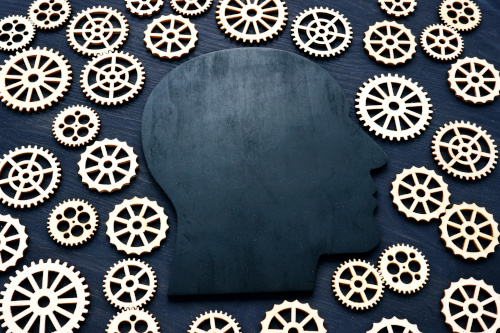Summer is here, and if you haven’t taken the opportunity yet, it’s time to relax. Teacher stress amidst the pandemic has understandably received a lot of attention, but even before COVID-19 turned our world, including our schools, upside down in an unprecedented way, 61 percent of teachers reported that work was “always” or “often” stressful, which is twice the rate of the general population and akin to the stress levels reported by doctors and lawyers (Greenberg, Brown, & Abenavoli, 2016).
That stress also has a ripple effect. The negative impact of stress may begin with an educator’s physical health and mental well-being and spreads to affect relationships with students and colleagues, the classroom environment, student achievement, and teacher turnover (Bintliff, 2020; Center for Health and Health Care in Schools, 2020; Greenberg, Brown, & Abenavoli, 2016; Ingersoll, Merrill, & Stuckey, 2014).
While there are a variety of ways to combat stress in general, including diet, exercise, meditation, and other techniques, SEL provides a unique lens for stress management in the context of the classroom.
In addition to helping manage personal stress levels, educators with strong social and emotional skills are better at navigating everyday challenges, are more prepared for the challenges of classroom management, are better able to model social and emotional skills to students, and are more adept at implementing social and emotional programs. National surveys indicate teachers want more professional development on the topic of SEL and how to tailor it to meet the needs of their students, yet most teachers do not receive SEL instruction in their preparation programs (Hamilton & Doss, 2020; Melnick & Martinez, 2019; Schonert-Reichle, Kitil, & Hanson-Peterson, 2017; Schwartz et al., 2020).
If you are an educator seeking to integrate SEL into your teaching practice–whether for personal stress management, professional development, classroom management, relationship development, or for all of these reasons–take the summer months to engage in the following activities to build your personal social and emotional competence before the busy school year begins.
Reflection
A foundational practice educators can start with is reflecting on their own social and emotional competencies. If your district uses an existing SEL framework for students, consider using that same framework as a basis for your reflection so your efforts are aligned with the work you are doing with students. If your district does not have an SEL framework, CASEL’s competencies is a nice research-based place to start.
Once you decide which competencies you want to reflect upon, ask yourself the following questions: What does this competency mean to me? Why is this competency important for my role as an educator? How does this impact my students? My colleagues? How can I enhance my own skills in this competency, as well as the skills of my students and/or colleagues?
Personal growth plan
Once you have reviewed your responses to these reflective questions, decide which strategies you would like to use. There are a variety of SEL strategies that can support educators in their growth. For example, if you want to work on Optimistic Thinking, you can use a strategy like The Sense that Keeps Me Going, available through this free guide. Once a strategy or group of strategies is selected, create a personal growth plan to determine how and when the strategies will be used. Reflecting on past experiences of trying to acquire a new habit or practice can be helpful in determining how this new skill will be developed.
Once you have selected a strategy, ask yourself the following questions: How often will I practice the strategy? How will I remind myself to use the strategy? How will I record and track my use of this strategy? How will I evaluate the outcome of my use of the strategy?
Build a support team
When you are working on a new goal, habit, or skill, having an accountability partner can add to your success. Think about when you work with students. You may often serve as their accountability partner in helping them stick to deadlines and making sure they are on track with learning different subjects. That doesn’t change when you reach adulthood! In fact, the busier your lives become, the more important accountability partners and extra support can be.
Once you’ve finalized your growth plan, find a trusted manager, colleague, or friend with whom you can share your SEL goal and who can help you stay on track. Schedule time to check-in with them about your progress.
Reflecting on your SEL competencies, identifying strategies to strengthen them, creating a growth plan and finding a support team to help you meet your goals are all activities that you can work on during the next few months to prepare for the coming school year.
The past year has highlighted the importance of social and emotional learning, both for teachers and students. If educators can take time this summer to reflect on and strengthen their own social and emotional competencies using the steps above, they will be better prepared to support SEL for their students when school resumes.
- Promoting student choice through SEL self-assessment - January 31, 2022
- How social and emotional competence leads to educational equity - October 26, 2021
- Building student resilience yields positive mental health behaviors - September 8, 2021

